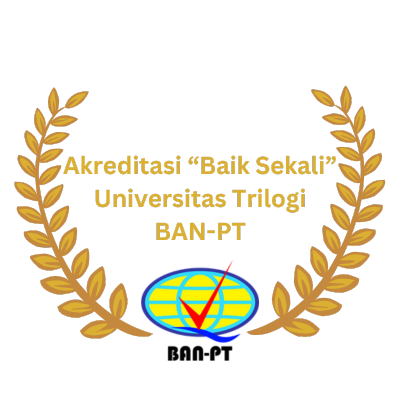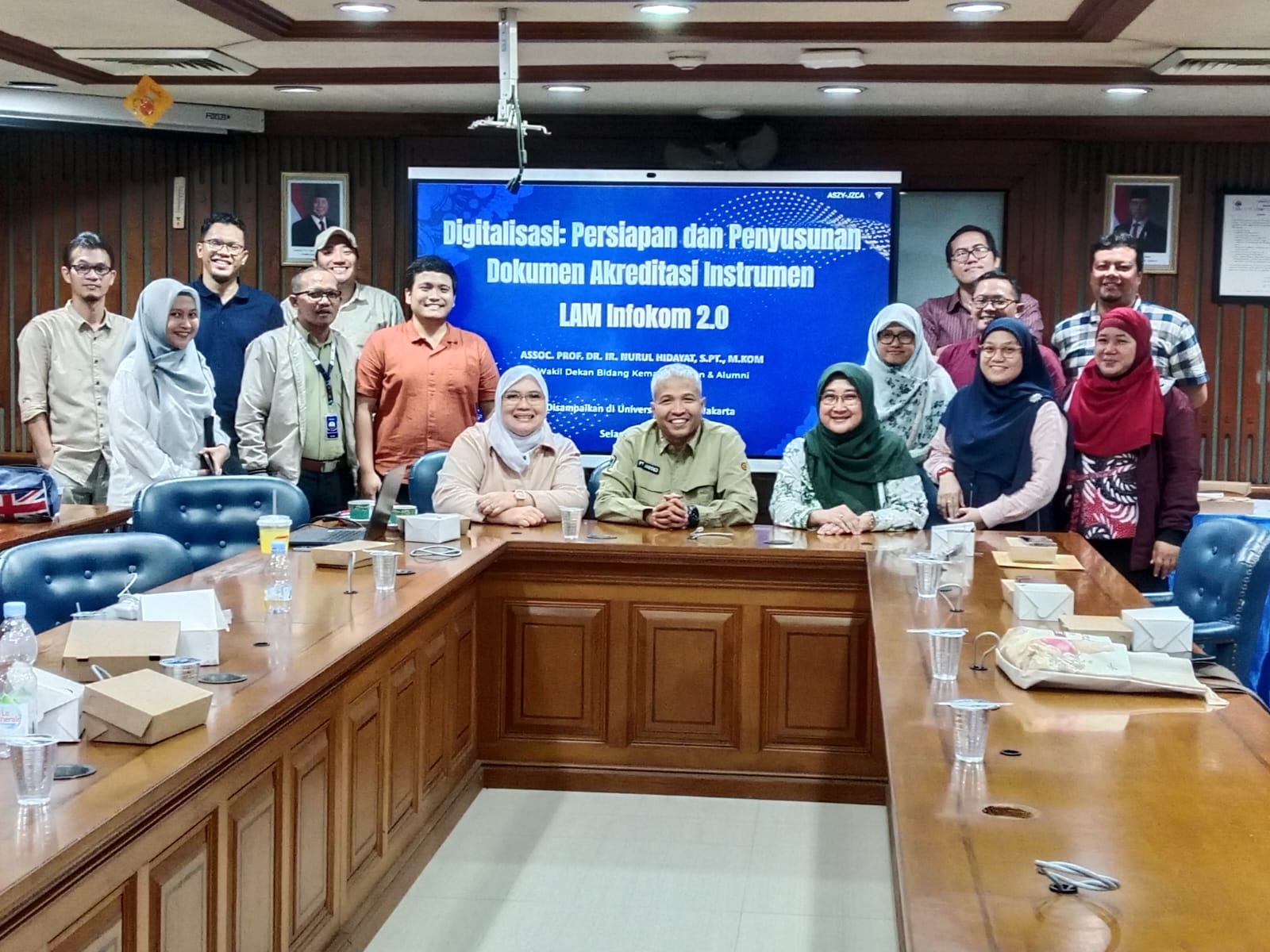Pendaftaran Mahasiswa Baru
AWARDS AND RECOGNITIONS






Digitalisasi : Persiapan dan Penyusunan Dokumen Akreditasi LAM Infokom 2.0
Dalam rangka mempersiapkan Program Studi Sistem Informasi dan Teknik Informatika menghadapi proses akreditasi dan pendampingan...
Penandatanganan MoU Universitas Trilogi dan UCSI University Malaysia
Jakarta, 26 Juni 2025 — Universitas Trilogi terus memperluas jejaring kerjasama internasionalnya. Kali ini, Universitas...
Selamat! Universitas Trilogi Meraih Silver Medal pada Lomba Asia Pasifik SAFE NETWORK, Vietnam.
Selamat Universitas Trilogi Meraih Silver Medal dalam lomba Inovasi Asia Pasifik Safe Network di Hanoi...
Pendidikan
Terdapat 2 Fakultas di Universitas Trilogi
Ekonomi, Bisnis & Humaniora
Program studi:
- Akuntansi S1
- Manajemen S1
- Ekonomi Pembangunan S1
- Magister Manajemen S2
- Pendidikan Guru Pendidikan Anak Usia Dini (PG-PAUD) S1
- Pendidikan Guru Sekolah Dasar (PGSD) S1
Sains, Teknik & Desain
Program studi:
- Desain Komunikasi Visual S1
- Desain Produk S1
- Sistem Informasi S1
- Teknik Informatika S1
- Agribisnis S1
- Ilmu Teknologi Pangan S1
- Agroekoteknologi S1
Tiga Pilar Dasar
Teknososiopreneur
Kewirausahaan berbasis teknologi dengan dampak sosial yang berkelanjutan.
Kolaborasi
Kemampuan membangun sinergi dan jejaring luas untuk mencapai tujuan bersama.
Kemandirian
Ketangguhan dan adaptasi dalam mengembangkan potensi diri secara mandiri.











